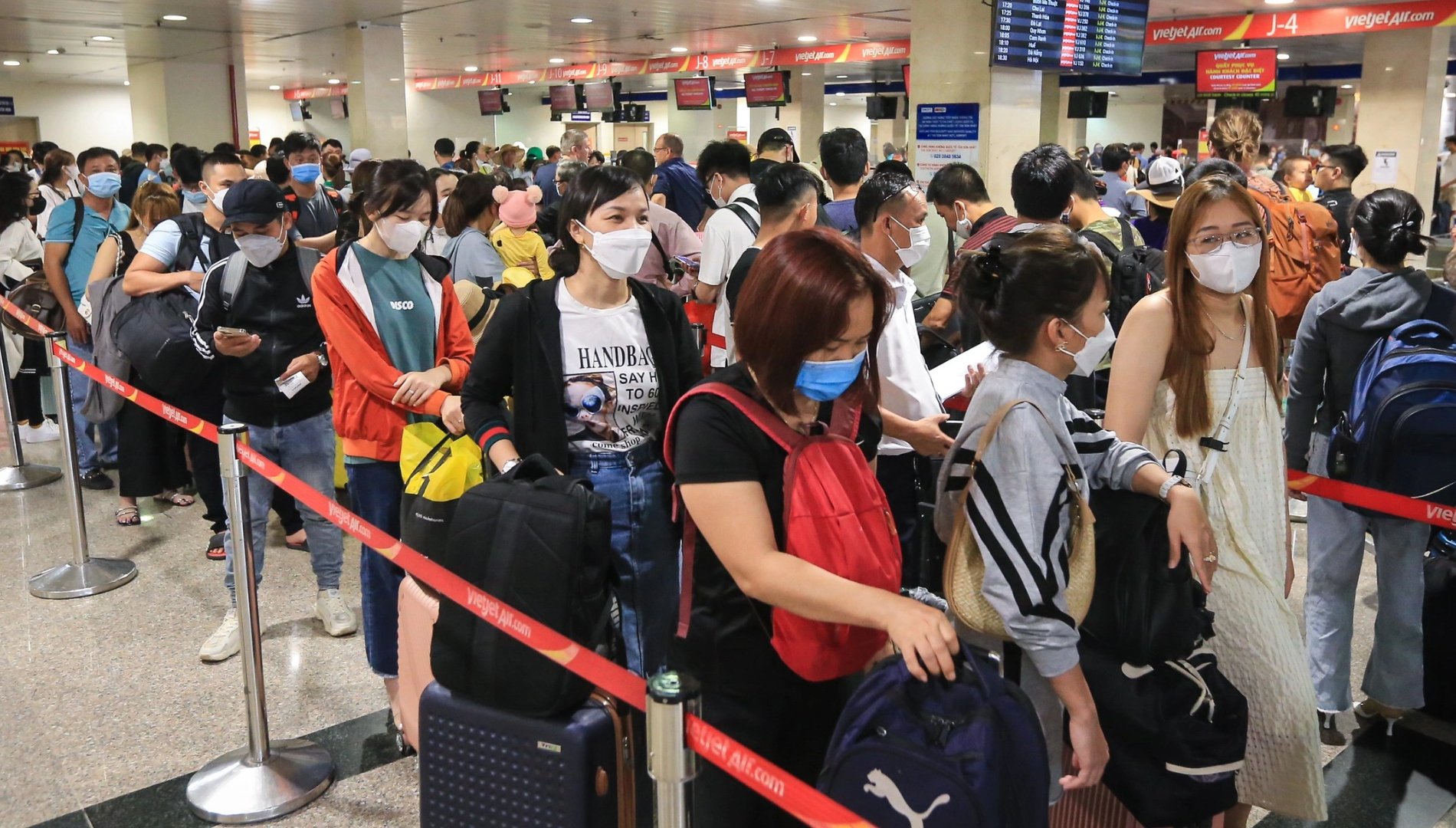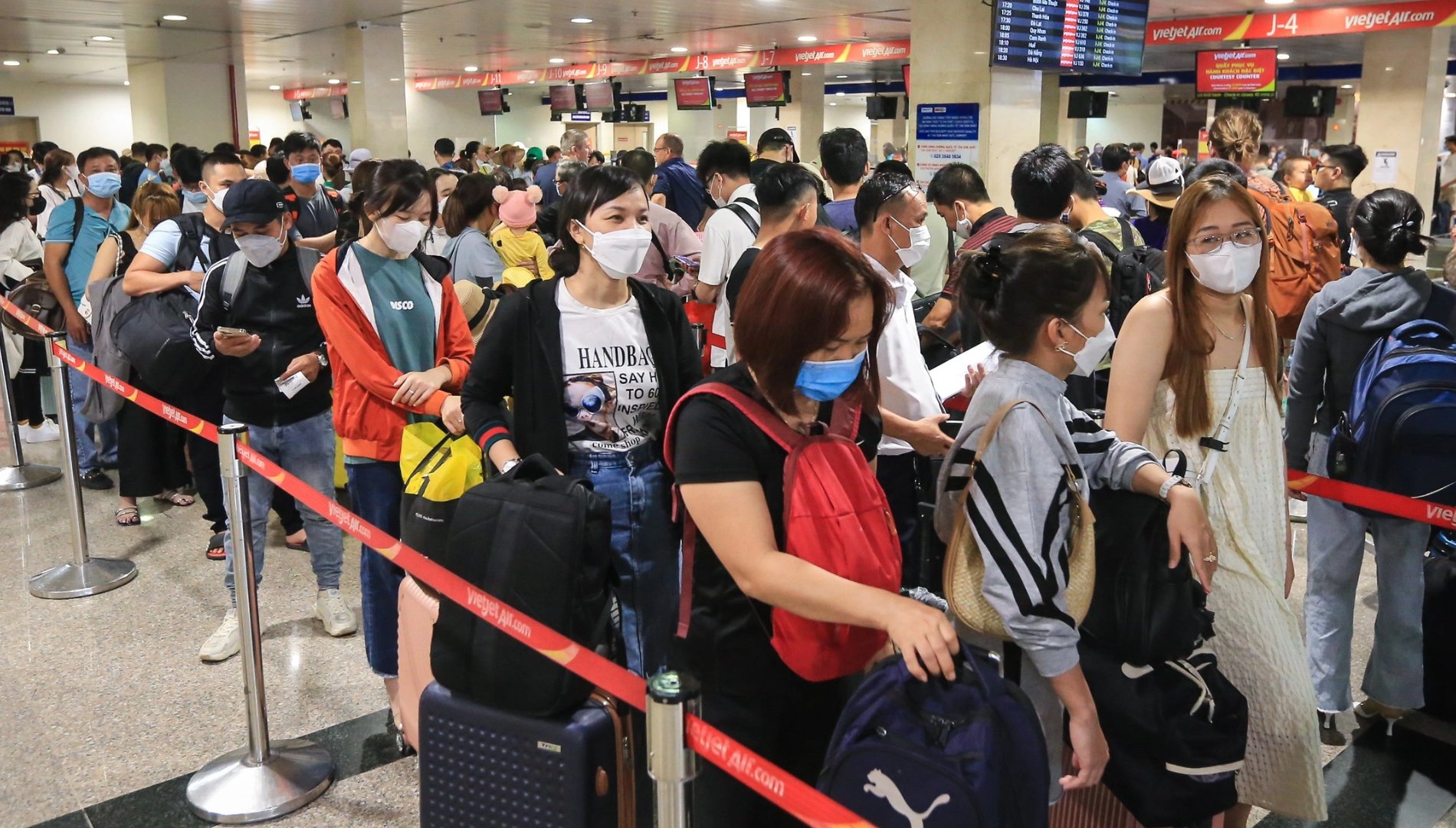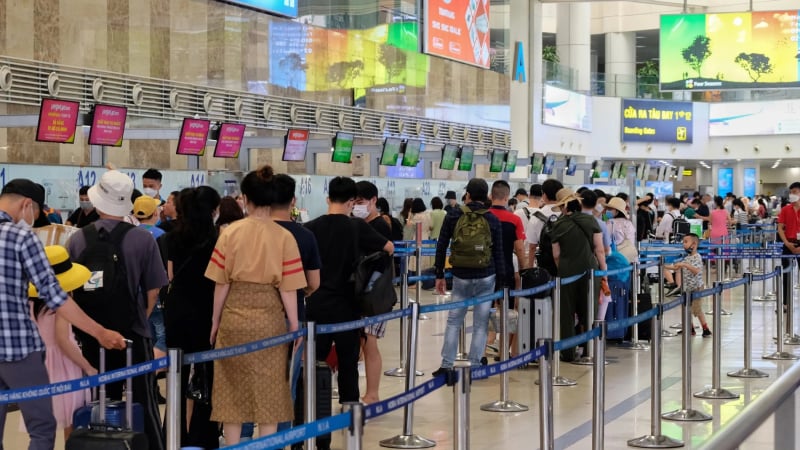Over the past few days, at Tan Son Nhat International Airport, the departure hall of Terminal 1, designated for Vietjet Airlines, has witnessed unprecedented chaos, causing considerable surprise and frustration for passengers.
The overcrowding led to noise and pushing. Many passengers lost their tempers and argued loudly, even using inappropriate language. Due to insufficient seating, many people sat on the floor, while others, exhausted, fell asleep in public areas.
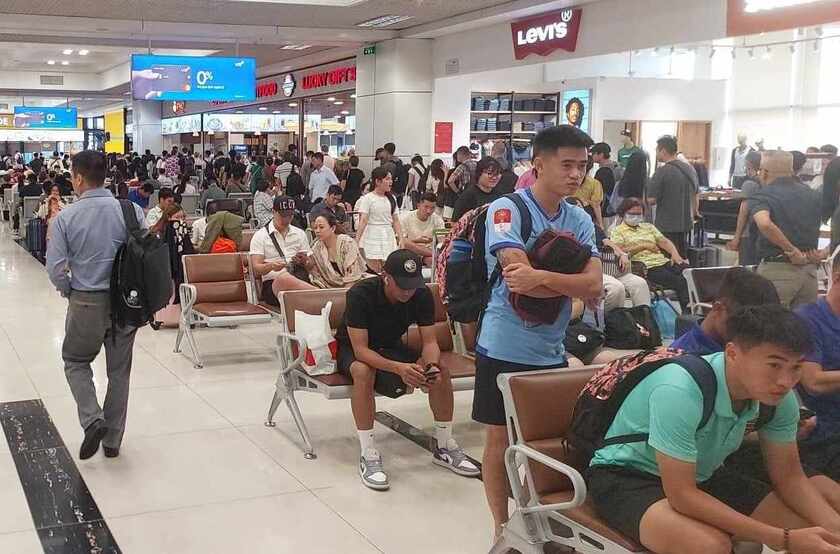
On forums and social media, passengers have complained about flight delays caused by Vietjet Airlines.
Many passengers have complained about flights being repeatedly delayed, with some being rescheduled 3-4 times, or even canceled without any official notification from the airline. Passengers' waiting times were unusually long, ranging from 5 to 10 hours. Notably, Vietjet flight VJ190 caused passengers to wait nearly 18 hours before takeoff. Attempts to contact the call center for assistance were also futile, with calls going unanswered, leaving passengers feeling abandoned and uninformed.
The root cause of the chaos and severe flight schedule disruptions at Tan Son Nhat Airport has been identified as stemming from the Saigon Ground Services Joint Stock Company (SAGS) officially handing over all ground services to Vietjet Airlines at 0:00 on April 20th. This change coincided with a peak travel period, when passenger numbers were surging, creating significant pressure on coordination and operations.
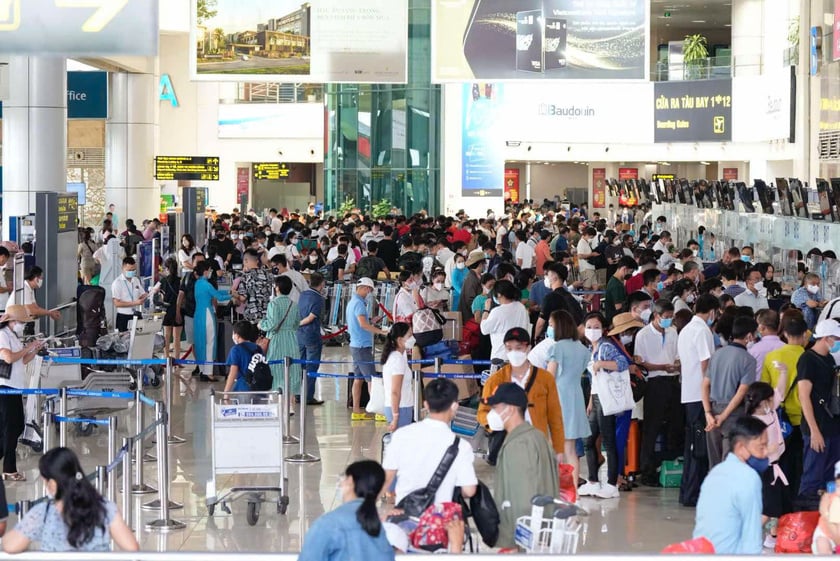
Following disruptions to several flights, Vietjet stated that it promptly requested and received timely cooperation from the Southern Airports Authority, Tan Son Nhat Airport, Tan Son Nhat Border Police, Tan Son Nhat Customs, SAGS, SASCO, SCSC, and others.
Furthermore, Vietjet Airlines is currently in the process of urgently preparing for the transition to operating at the new T3 terminal. The disruption to procedures and facilities during this transition, coupled with the need to ensure continuous flight operations, has posed significant challenges for the airline.
With the upcoming April 30th and May 1st holidays, passenger traffic through Tan Son Nhat Airport and into Ho Chi Minh City is expected to continue to increase significantly. Consequently, the frequency of flights will also peak, putting pressure on airport infrastructure, especially the apron area, leading to traffic congestion, delays in service, and flight turnarounds.
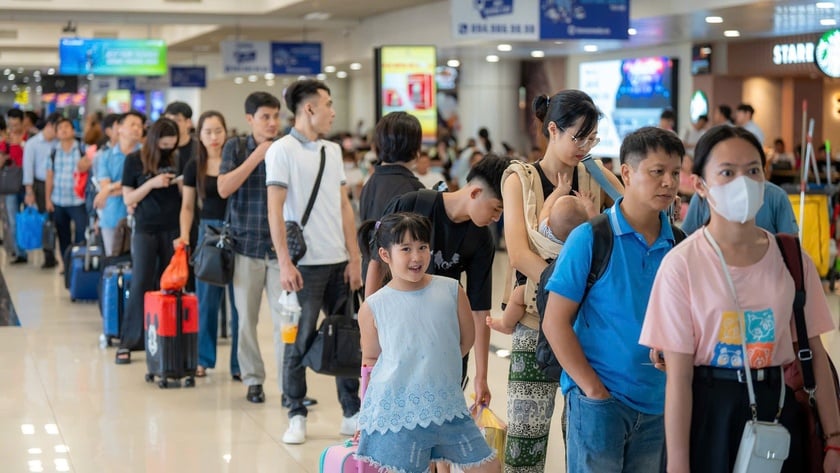
Besides apologizing to affected customers, and to support and share the burden with passengers, in addition to airport support policies, Vietjet announced that it will send compensation e-vouchers.
Following reports of serious flight delays and disruptions at Tan Son Nhat Airport, aviation authorities quickly intervened. According to aviation officials, Vietjet currently operates at Tan Son Nhat Airport with a significant frequency, estimated at around 120 flights per day. Given the urgent situation, the Southern Aviation Authority promptly requested Vietjet to increase its staff and provide necessary equipment to thoroughly address the delays and cancellations that are causing public concern.
To gain an objective and comprehensive understanding of the situation, the Vietnam Civil Aviation Authority has decided to establish a specialized inspection team to review the operational situation at Tan Son Nhat Airport for five days, starting from April 22nd. This move demonstrates the management's determination to clarify the cause and propose timely corrective solutions.
On the same day, Vietjet Airlines also officially responded to these unfortunate incidents. In a press release sent to media outlets, Vietjet representatives sincerely apologized to all passengers affected by the delays and cancellations of flights in recent days. The airline also emphasized that it had proactively proposed and received active cooperation from relevant units at Tan Son Nhat Airport, including the Southern Aviation Authority, Tan Son Nhat International Airport, Tan Son Nhat Border Police, Tan Son Nhat Customs, Saigon Ground Services Joint Stock Company (SAGS), Tan Son Nhat Airport Aviation Services Joint Stock Company (SASCO), and Tan Son Nhat Cargo Services Company Limited (SCSC).
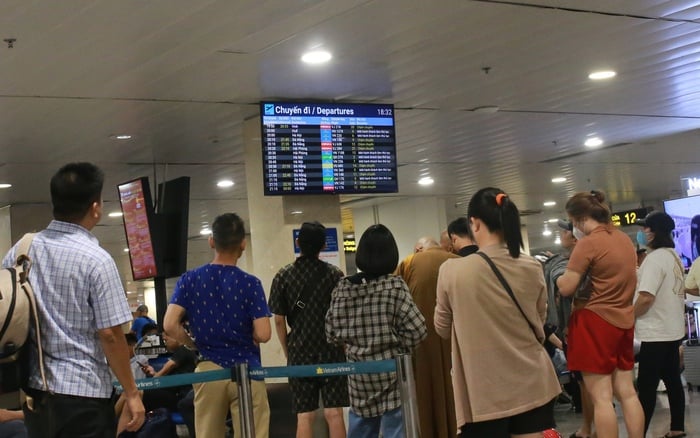
"The airline is making every effort to implement various solutions to provide passengers with the safest, most convenient, and most attentive service during the peak season," a Vietjet representative shared.
In addition, Vietjet promptly reported the incident to the Civil Aviation Authority of Vietnam and received necessary support from the authorities. These actions demonstrate the airline's efforts to be transparent with information and cooperate with relevant parties to resolve the crisis.
As of April 22nd, operational activities at Tan Son Nhat International Airport and related airports have shown signs of stabilizing. Units are making every effort to ensure safe and on-time flights, especially in the context of the upcoming peak holiday season.
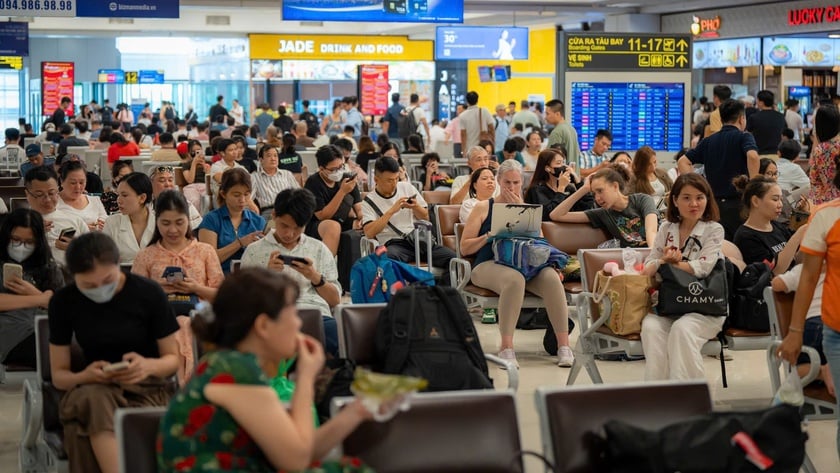
Previously, Vietjet was licensed to provide its own ground handling services at Noi Bai Airport from August 2020, with hundreds of thousands of safe flights. From April 20th of this year, the airline began providing its own ground handling services at Tan Son Nhat Airport.
Along with the apology, Vietjet announced a specific compensation policy for passengers affected by flight delays of two hours or more on April 20th and 21st. Accordingly, the airline will apply e-vouchers (electronic vouchers equivalent to cash) with compensation of VND 500,000 per passenger for domestic flights and VND 1,000,000 per passenger for international flights. This is seen as a move to alleviate the inconvenience suffered by passengers.
According to our research, Vietjet has experience in self-managing ground services at Noi Bai International Airport (Hanoi) since August 2020 and has safely operated hundreds of thousands of flights. Notably, according to Circular 19/2023 of the Ministry of Transport (now the Ministry of Construction), a flight is considered delayed when the actual departure time is more than 15 minutes later than the scheduled departure time. In cases where the flight delay is not due to passenger fault, the airline is responsible for notifying and apologizing to passengers and ensuring the fulfillment of certain carrier obligations.
Specifically, for flight delays of 15 minutes to less than 2 hours, airlines must ensure passengers receive meals, accommodation, transportation, and cover any additional costs incurred during the waiting period. If the delay is 2 hours or more, the airline is responsible for transferring passengers to another flight without charging any additional fees. Furthermore, for flight delays of 5 hours or more, if requested by passengers, the airline must refund the full cost of the airfare and provide compensation in accordance with current regulations. These regulations constitute a crucial legal basis for protecting passengers' rights in situations of flight disruption.

 VI
VI EN
EN



